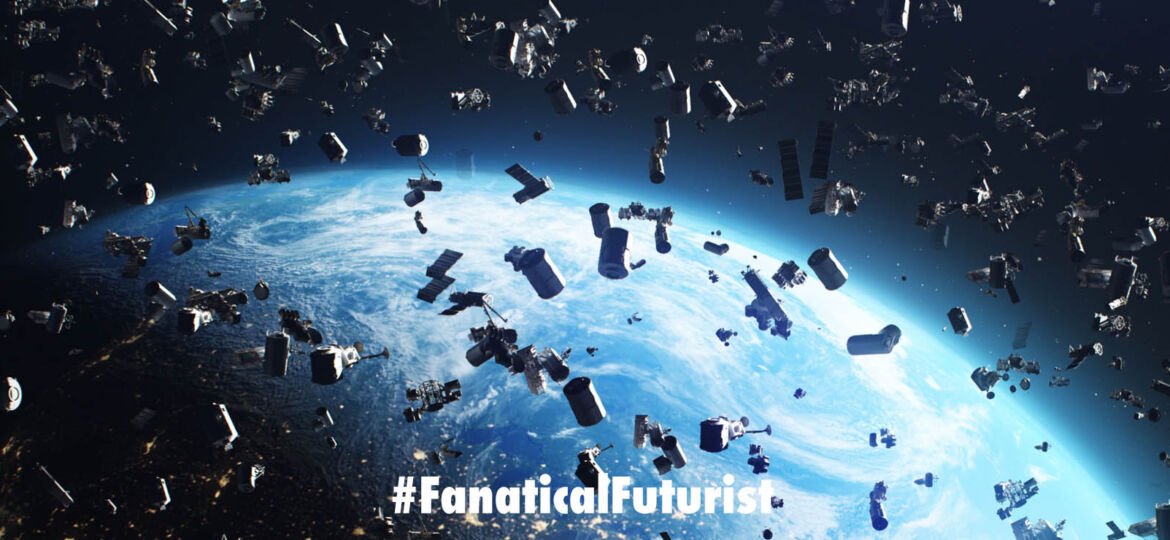
WHY THIS MATTERS IN BRIEF
There’s plenty of junk in space, and if it can be turned into fuel then it will kill two birds with one stone.
 Love the Exponential Future? Join our XPotential Community, future proof yourself with courses from XPotential University, read about exponential tech and trends, connect, watch a keynote, or browse my blog.
Love the Exponential Future? Join our XPotential Community, future proof yourself with courses from XPotential University, read about exponential tech and trends, connect, watch a keynote, or browse my blog.
First, we heard about a startup that can turn plastic waste in the oceans and use it to power the ships that are helping clean up the oceans, and now in a similar move but in an all together different theatre an Australian company, which is part of an international effort, has announced plans that they’re going to be recycling dangerous space junk into rocket fuel – in space.
For aerospace companies this seems like a win win – get rid of space junk which threatens the future of space travel and solve the problem of satellites and space vehicles falling out off the sky when they run out of fuel. It also comes hot on the heels of the launch of the first gas station in orbit.
The orbit our planet depends on is getting clogged with debris from old spacecraft. Dead satellites and spent rocket parts are whizzing around at speeds of up to 28,000 kilometres an hour, posing a threat to communications satellites and the International Space Station (ISS).
At those speeds, even a small screw or a fleck of paint poses a risk to facilities such as the ISS, as well as the humans in them.
The other week Russia fired a missile and destroyed one of its own satellites, sending debris flying. The US said that debris now “threatens the interests of all nations.” The worst-case scenario is cascading collisions between smaller and smaller bits of space junk until orbits become unusable, a situation known as the Kessler Effect.
In response to this South Australian company Neumann Space has developed an “in-space electric propulsion system” that can be used in low Earth orbit to extend the missions of spacecraft, move satellites, or de-orbit them. And now Neumann is working on a plan with three other companies to turn space junk into fuel for that propulsion system.
Japanese start-up Astroscale has already demonstrated how it can use satellites to capture bits of debris in space.
Nanorocks, in the US, is working on a plan using advanced robotics to store and cut up that debris while it is still in orbit, and yet another US company, Cislunar, is developing a space foundry to melt debris into metal rods. And Neumann Space’s propulsion system can use those metal rods as fuel – their system ionises the metal which then creates thrust to move objects around orbit.
Chief executive officer Herve Astier said when Neumann was approached to be part of a supply chain to melt metal in space, he thought it was a futuristic plan, and would not be “as easy as it looks.”
“But they got a grant from NASA so we built a prototype and it works,” he said.
“We did a live technology demonstration. One can grab a piece of debris, one can cut the debris open, one can melt the debris, and we can use that,” he added.
Once objects are sent into orbit, they can be there forever unless they float out of orbit and burn up in Earth’s atmosphere or occasionally hit Earth’s surface. As the space junk problem worsens, institutions around the world are trying to come up with solutions, from magnets to “space claws” to harpoons, and Australian researchers are also working on the problem.
Meanwhile Saber Astronautics has won another NASA grant to develop a drag sail, which will launch from a spacecraft at the end of its life and drag it out of orbit.
Sydney’s Electro Optic Systems, working with the University of Canberra, has developed laser technology that can nudge junk away from potential collisions, or towards the atmosphere.
The Australian Institute of Machine Learning has a grant to improve detection and tracking of debris, and a new surveillance radar in Western Australia will help with that too.
Recycling the junk, instead of capturing it or destroying it, is another dimension again. Astier says it is still futuristic, but now he can see that it’s possible.
“A lot of people are putting money into debris. Often it’s to take it down into the atmosphere and burn it up. But if it’s there and you can capture it and reuse it, it makes sense from a business perspective, because you’re not shipping it up there,” he said. “It’s like developing a gas station in space.”
















